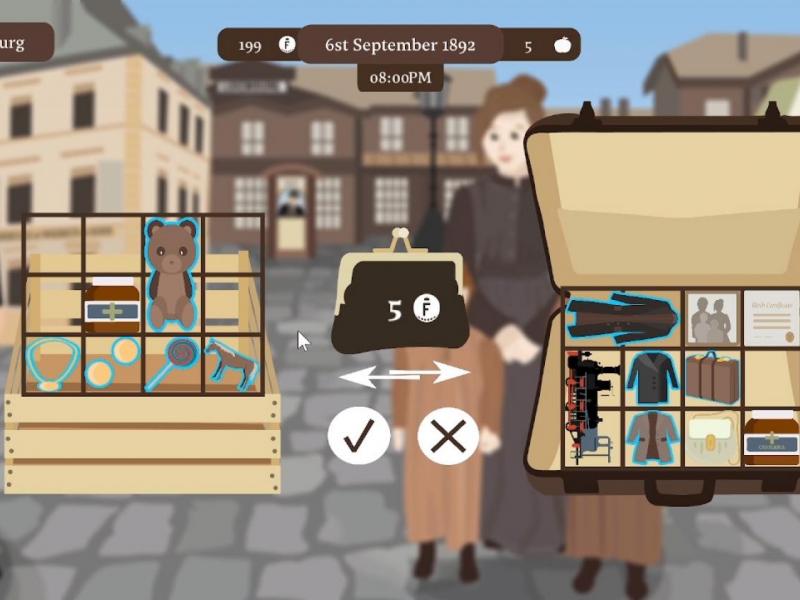Lecture by Marie-Paule Jungblut (Luxembourg) in the context of the research colloquium
Serious Game: Migrants' Chronicles 1892: An educational digital game between veracity and playability

Date:
18.11.2021Place:
digital per Zoomlink:
Thema: Forschungskolloquium TCDH
ab 18. Nov 2021 18 – 20 Uhr
https://uni-trier.zoom.us/j/82546688417?pwd=ZE9Ld3IzcXYxeitTRVN1THA2aldNZz09
Categories:
EventContact:
Dr. Claudia BambergThe goal of the project Migrants’ chronicles 1892 is to create a digital educational game about the migration of Luxembourgers to the United States in the 19th century for use in schools and museums. Its aim is to pass on the memory of Luxembourg emigration to young people, ages 11-13. Young people, ages 11 and 13 years are digital natives. For some, the game will build upon knowledge previously acquired from books and school lectures. For students, who do not learn from traditional academic approaches, the immersive game will open the door to new forms of learning. If successful, the project represents more than a stand-alone effort. Rather, it may show a way to enabling school children to take charge of their own learning as an active process. Our game can serve as a template that can accept a variety of content of other historical situations.
In the 1st part of the session Marie-Paule Jungblut, who is the project manager of the game, will present the demo of the game.
The 2nd part of the seminar will be dedicated to the development process of a serious historical game and the challenges that historians and game developers face when working together on a serious game
The Migrants’ Chronicles project is a collaboration between the Faculty of Humanities Education and Social Sciences of the Luxembourg University, the Cologne Game Lab,TH Köln, and the Humanities Center of Carleton College, Northfield, MN (USA) with the support of the Oeuvre de secours Grande-Duchesse Charlotte.
The audience is invited to read :
- Part 1 (p. 1-8) of the attached text: Emmanuel Guardiola, André Czauderna, Yavuz Samur, Player-Centred Educational Game Design. The Case of Antura and the Letters (2019).
- Matthew Wilhelm Kapell and Andrew B. R. Elliott, “Conclusion(s): Playing at True Myths, Engaging with Authentic Histories,” in Playing with the Past: Digital Games and the Simulation of History, ed. Matthew Kapell and Andrew B. R. Elliott, New York 2013, p. 357–69.

